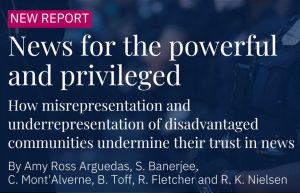Thinking about the future of news
‘Hyperlocal’ web sites deliver news without newspapers [The New York Times]
Just as some cities’ newspapers sputter, a handful of Web sites emerge to cull local content from government data, blogs and news media.
In Boston, paper’s peril hits a nerve [The New York Times]
The threat of a shutdown or a sale of The Boston Globe has brought together civic leaders and residents, speaking out about the paper’s role in the region.
Papers try to get out of a box [The New York Times]
Newspapers are increasingly talking about putting up pay walls and tracking the use of content online.
Pulp Friction: life in the post-publishing era [Nokia’s IdeasProject]
Since we’ve lost all of the pre-publishing ratchets and filters, it’s up to the online viewer to be more aware, more discriminating, and – this is crucial – more vocal, once information is published. It’s critical that we don’t just read new media: We need to reflect, interact, respond. We need to be the new sources of friction, adding our voices to the fabric of published information. That’s the only way to keep media healthy – as a team sport.
Citizen journalism will break into network news [Nokia’s IdeasProject]
Pioneering videoblogger Steve Garfield says that a combination of technologies will make it possible to stream live reports from the cell phones of citizen journalists to network news. The tremendous advantages this offers in the way of ubiquity, cost-effectiveness, and authenticity will almost certainly bring the kind of disruptive effect to television media that Internet audience dynamics has had on traditional print journalism.
>> More background on live news streaming: LA Times | Newsweek




William Perrin, who writes the blog Ultra Local Voice: http://ultralocalvoice.wordpress.com/ has loads of great stuff about local news a service in the UK and beyond. Check out his presentation here: http://www.slideshare.net/bill_per/listen-to-us-creating-thousands-of-local-presentation?src=embed
NickMarsh,
The links you provided show how the newspaper can and should evolve from a passive tool for information to an electronic beacon for the communities.
The concept of news being filtered to reflect neighborhood concerns or events is an interesting idea. Most people are so far removed from local issues and events, they become jaded and apathetic.
When you are aware of activity in your own back yard, you are more apt to engage becuase you have a vested interest.